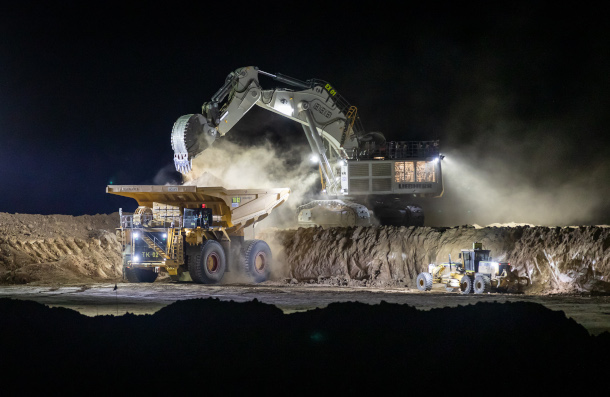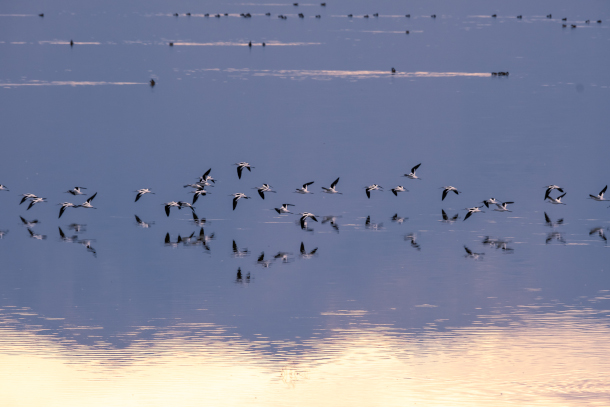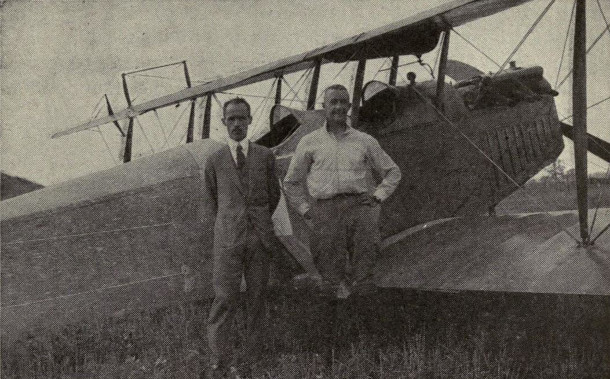Beyond the Headlines
Air Date: Week of July 30, 2021

The Carmichael Coal Mine in Queensland, Australia. (Photo: Cameron Laird, Wikimedia Commons, CC BY-SA 4.0)
For this week's trip beyond the headlines, Environmental Health News Editor Peter Dykstra joins Host Steve Curwood to talk about G20 nations providing more than $3 trillion in subsidies for fossil fuels despite their pledges to reduce emissions under the Paris Accord. Then, the two turn to the Great Salt Lake, which is becoming an environmental hazard as it continues to dry up. Finally, the two look at the 100th anniversary of the first crop dusting by airplanes and the birth of Delta Airlines.
Transcript
CURWOOD: Time now to take a look beyond the headlines with Peter Dykstra. Peter's an editor with EHN.org and DailyClimate.org. He is on the line now from Atlanta, Georgia. Peter, what's going on? What do you have for us today? And how are you?
DYKSTRA: I'm doing fine, Steve. And I've got some news from the G20. The 20 most affluent, most influential nations in the world. There's a report from Bloomberg New Energy Finance, it's a little think tank that's become an influential voice in tracking clean energy and climate change related issues. Bloomberg NEF says that the G20 nations are engaging in reckless subsidies for fossil fuels, oil, coal gas, despite their pledges to address climate change. $3.3 trillion in subsidies in the last five years.
CURWOOD: Since Paris, in other words, having pledged to cut back at Paris. Nonetheless, they spent over $3 trillion on subsidizing fossil fuels. Who were the bad boys here?
DYKSTRA: In terms of percentages, the nation that's done the worst is Australia. Their subsidies, mostly for the coal industry, have grown by 48%. Australia is making a healthy living these days exporting coal to India and China. But number two on the list, getting the silver metal is the United States of America. We'll give a little gold star to the UK because they've actually reduced their subsidies for fossil fuels.
CURWOOD: Well, thank you, UK! And no surprise about the US since most of the last five, six years since the Paris Agreement was struck, we were out of it. What else do you have for us today?

Shorebirds fly over the Great Salt Lake in Utah. (Photo: I.M. Stile, Flickr, CC BY-NC 2.0)
DYKSTRA: Here's something that's shrinking. And that's the Great Salt Lake. That beautiful, picturesque body of salty water in northern Utah in the middle of the desert has reached its record low levels ever. That concerned scientists. Number one, the Great Salt Lake is a very important stopover for migratory birds. But also when the lake bed dries up, there are toxic metals and other substances that blow around as dust that are unhealthy for humans, migratory birds and every other form of wildlife.
CURWOOD: And to what extent is the Great Salt Lake a source of salt? That is, the sodium chloride, the stuff that people can put on their food, and elements like magnesium?
DYKSTRA: Magnesium, other elements, there's actually a market for brine shrimp. One of the things that migratory birds eat, but also there's a market for them out there among humans. The Great Salt Lake also impacts weather in the region. Much like the Great Lakes, it can create lake-effect snowfall, which is something that the ski resorts of Utah depend upon.
CURWOOD; Let's turn now to the history books and if you flip open one, tell me what you see.
DYKSTRA: An august 100th anniversary, August 3rd, 1921 to be specific. The first crop dusting aircraft is flown by Lieutenant John Macready, who dusts a field of catalpa trees near Troy, Ohio, using lead arsenic, what can possibly go wrong, to kill caterpillars?

Lieutenant John Macready (right) and Etienne Dormoy (left) stand in front of the first aircraft used for crop dusting on August 3rd of 1921. (Photo: Wikimedia Commons, Public Domain)
CURWOOD: Yeah, I guess if the lead didn't get them, the arsenic certainly did.
DYKSTRA: Yeah, one of the biggest operators in the south, where crop dusting really caught on due to the boll weevil infestation, started in 1925 in Macon, Georgia, not too far from here. Huff Daland Dusters Incorporated did a booming business, not just in Georgia, but in the Mississippi Delta. There they started a passenger and air mail service, Delta Air Service in 1928. They pretty soon after got out of the crop dusting business. So you're airborne pesticides don't have to change planes in Atlanta for one of the world's largest airlines.
CURWOOD: All right. Well, thanks, Peter. Peter Dykstra is an editor with Environmental Health News, that's EHN.org and DailyClimate.org. We'll talk to you again later this summer.
DYKSTRA: All right, Steve, thanks a lot. We'll talk to you soon.
CURWOOD: And there's more on these stories on the Living on Earth web page. That's LOE.org.
Links
The Guardian | “‘Reckless’: G20 States Subsidised Fossil Fuels By $3tn Since 2015, Says Report”
Fox: Salt Lake City | “Great Salt Lake Hits All-Time Historic Low”
Learn more about the first cropdusting airplanes and John Macready here
Living on Earth wants to hear from you!
Living on Earth
62 Calef Highway, Suite 212
Lee, NH 03861
Telephone: 617-287-4121
E-mail: comments@loe.org
Newsletter [Click here]
Donate to Living on Earth!
Living on Earth is an independent media program and relies entirely on contributions from listeners and institutions supporting public service. Please donate now to preserve an independent environmental voice.
NewsletterLiving on Earth offers a weekly delivery of the show's rundown to your mailbox. Sign up for our newsletter today!
 Sailors For The Sea: Be the change you want to sea.
Sailors For The Sea: Be the change you want to sea.
 The Grantham Foundation for the Protection of the Environment: Committed to protecting and improving the health of the global environment.
The Grantham Foundation for the Protection of the Environment: Committed to protecting and improving the health of the global environment.
 Contribute to Living on Earth and receive, as our gift to you, an archival print of one of Mark Seth Lender's extraordinary wildlife photographs. Follow the link to see Mark's current collection of photographs.
Contribute to Living on Earth and receive, as our gift to you, an archival print of one of Mark Seth Lender's extraordinary wildlife photographs. Follow the link to see Mark's current collection of photographs.
 Buy a signed copy of Mark Seth Lender's book Smeagull the Seagull & support Living on Earth
Buy a signed copy of Mark Seth Lender's book Smeagull the Seagull & support Living on Earth

